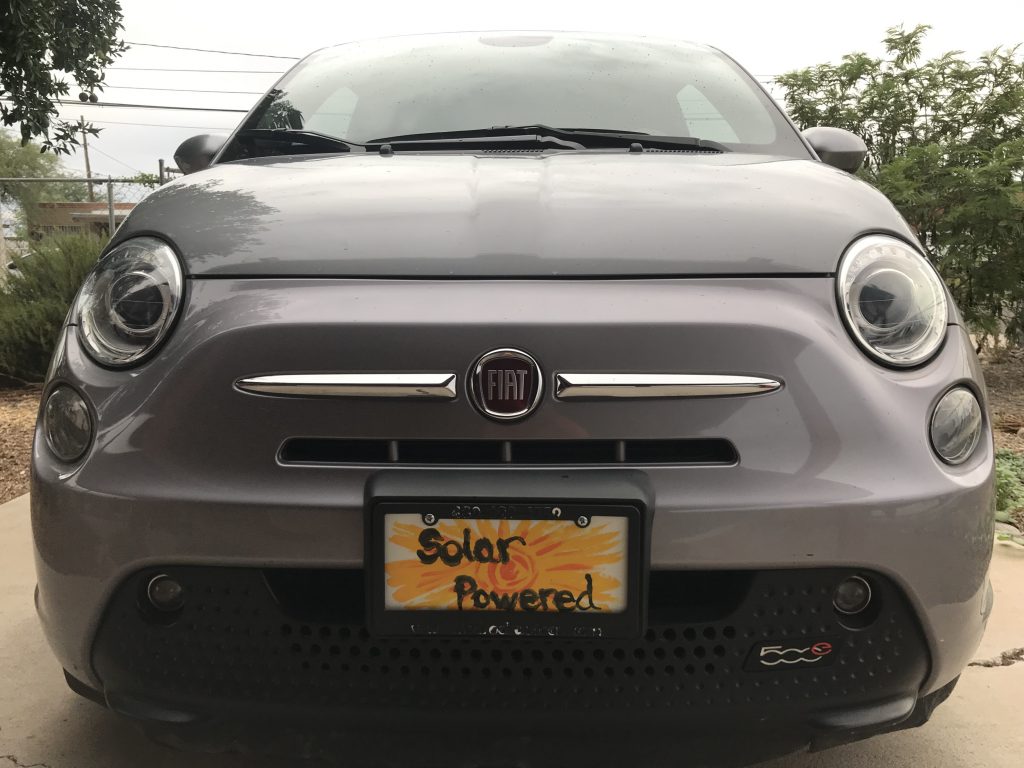Electrifying personal transport is fun and gives us a chance to declare victory over a part of life that can be emblematic of unsustainable consumption. Electric vehicle (EV) options, new and used, are rapidly filling the spectrum of transportation needs. E-bikes are a great way for many to get around Tucson economically and in comfort.
Costs and incentives
Operating costs make EVs an economic option over their useful life. Maintenance costs are generally far lower than for their fossil forebears. Many models qualify for a $7,500 federal incentive. Keep an eye out for new federal programs that may increase this incentive and reduce used EV prices. For in-town driving, a home charger, if practical, will cure most range anxiety. Federal and Southern Arizona utility rebates are available for chargers installed at homes, businesses, non-profits, and at multi-family housing locations.

Solar powering an EV
If you will charge your car mostly with home-based solar, plan on using the production of about 1 kilowatt of solar (about three typical panels) for each 150 local* miles driven weekly. (This is based on a fuel efficiency of 3.5 EV miles per kiloWatt-hour of energy. On an e-bike, you’ll get 10 times that mileage!)
Some home-based chargers allow the user to set and adjust charging current and schedules to minimize utility costs and maximize the use of home-produced solar energy or renewable energy from the utility. JuiceBox offers this feature, manageable from any web-connected device.
Can my car power my house or help decarbonize the grid?
Some manufacturers are making their EVs capable of a bidirectional energy connection to the charging location, so that not only can your EV be charged at home, but it can energize your house during an outage, maximize household use of solar energy stored in its battery, or support the grid during periods of peak usage when it is plugged in and directed to do so. Hardware to complete this scenario is not commonly available in the USA as of December 2021, but may become so soon.
What about all the mined materials that go into EVs?
Is it better to drive a gas car than to make Lithium batteries? It turns out that EVs use 99% fewer mined materials than gas cars.
*Don’t count miles from long trips where you’ll be charging away from home.)
Next: Home and Transportation Electrification Incentives
Energy Transformation Home
Electrify Everything
– Electrifying Home
– Electrifying Transportation
– – Home and Transportation Electrification Incentives
Electrifying Work & Leisure (coming soon)
Renew our Energy Supply
Adjust our Rhythms
